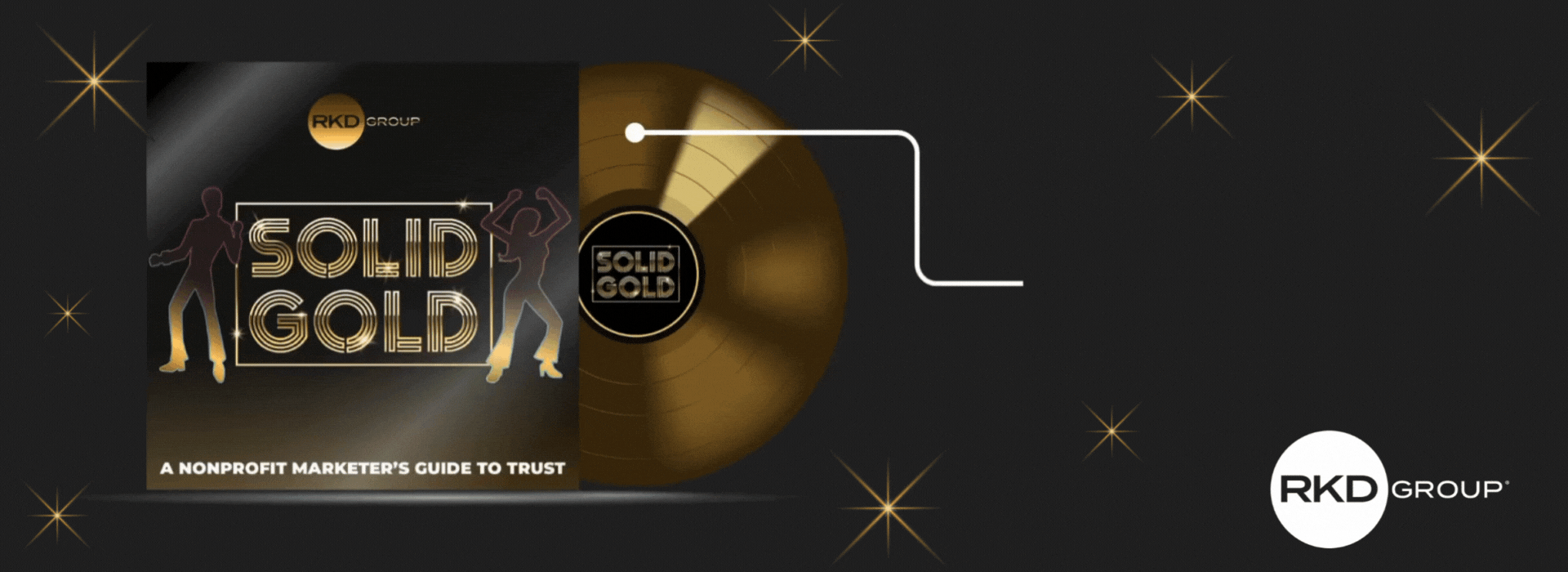 A few months ago, I wrote an op-ed for The NonProfit Times declaring that “fundraising is broken.”
A few months ago, I wrote an op-ed for The NonProfit Times declaring that “fundraising is broken.”
In the fundraising sector, we’re more focused on donations than on our donors. We’re trapped in execution. And we’ve lost the trust of our supporters.
In the piece, I urged everyone in the industry to stand up, to intervene and to commit to change. And plenty of people have stood up—just search for #quitbadfundraising on LinkedIn, and you’ll see them.
But what’s the next step? What happens after we “quit”? How do we begin to turn around this big, beautiful sector and point it in the right direction?
We need to shift our industry’s thinking and culture in a number of ways, and one area that I’ve been focused on lately is trust.
Shortly after I started as CEO at RKD Group, I saw in the Edelman report that trust in nonprofit organizations had fallen below for-profit businesses. This stopped me in my tracks. In fact, my response was a bit like Kristen Bell’s character from The Good Place shouting, “What the fork?!”
How could this be? How did we get here? I dug a little deeper.
Another report by Independent Sector found that 81% of respondents were confident in the ability of nonprofits to strengthen American society. However, only 47% believe the sector is headed in the right direction.
There appears to be a disconnect between the perceived potential of nonprofits and confidence in their ability to affect change.
There appears to be a disconnect between the perceived potential of nonprofits and confidence in their ability to affect change.
These findings spurred our team to commission our own research to understand what forces drive trust in nonprofit organizations. We surveyed 1,630 donors across the U.S. and published a report this summer called, “Solid Gold: The Nonprofit Marketer's Guide to Trust.”
There are lots of great insights in that report, but the one that really stuck with me is that donors can have a high level of trust in a nonprofit without having a strong relationship with the organization.
This makes a lot of sense when you think about where trust plays a role in your own life.
For example, nurses are widely regarded as the most trusted profession. For the 21st consecutive year, Gallup named nurses the most honest and ethical profession in America.
As you read this, you may be thinking about nurses who have had an impact on your life. Maybe they helped you or a loved one in a challenging time. And you probably have a strong feeling of trust toward them.
Now, close your eyes and picture those nurses. What were their names? When was the last time you invited them over for dinner? How often do you text them to check on their kids?
They’ve earned your trust without a deeper relationship.
We’ve been so focused on building relationships with our donors that we’ve skipped over this initial step of building trust first. In fundraising today, we’re asking donors to marry us on the first date. We need to take the time to build trust.
In fundraising today, we’re asking donors to marry us on the first date.
Focusing on trust is worth the investment.
Author Stephen Covey writes in his book “The Speed of Trust” that trust allows organizations to execute their goals faster and at a lower cost because of the economics of trust.
The economics of trust is simple: People buy from those they trust, which leads to higher profit margins. Translate this to nonprofits: Donors give to organizations they trust, which leads to higher ROI.
Trust is currency.
This brings us to the big question: How do we rebuild trust with donors?
I believe it has to start from within the organization. You must build a culture of trust among employees and colleagues before you start looking outward.
Then, when the organization is ready, you can focus on Covey’s four cores of trust: integrity, intent, capabilities and results. Here’s how that breaks down for nonprofits:
- Integrity: Honesty and transparency with constituents
- Intent: What you want to accomplish in your mission
- Capabilities: The quality of the people and programs that do the work
- Results: Getting the job done
Our industry excels at telling supporters about #2—casting a vision and creating inspiration. We’re so-so at talking about #3, and we can do a lot better in areas of transparency (#1) and sharing results (#4).
Not everyone wants a relationship with your organization. Not everyone wants to volunteer or attend your gala. But everyone needs to trust that you will put their money to good use.
Let’s start rebuilding that trust today.






Leave a comment: